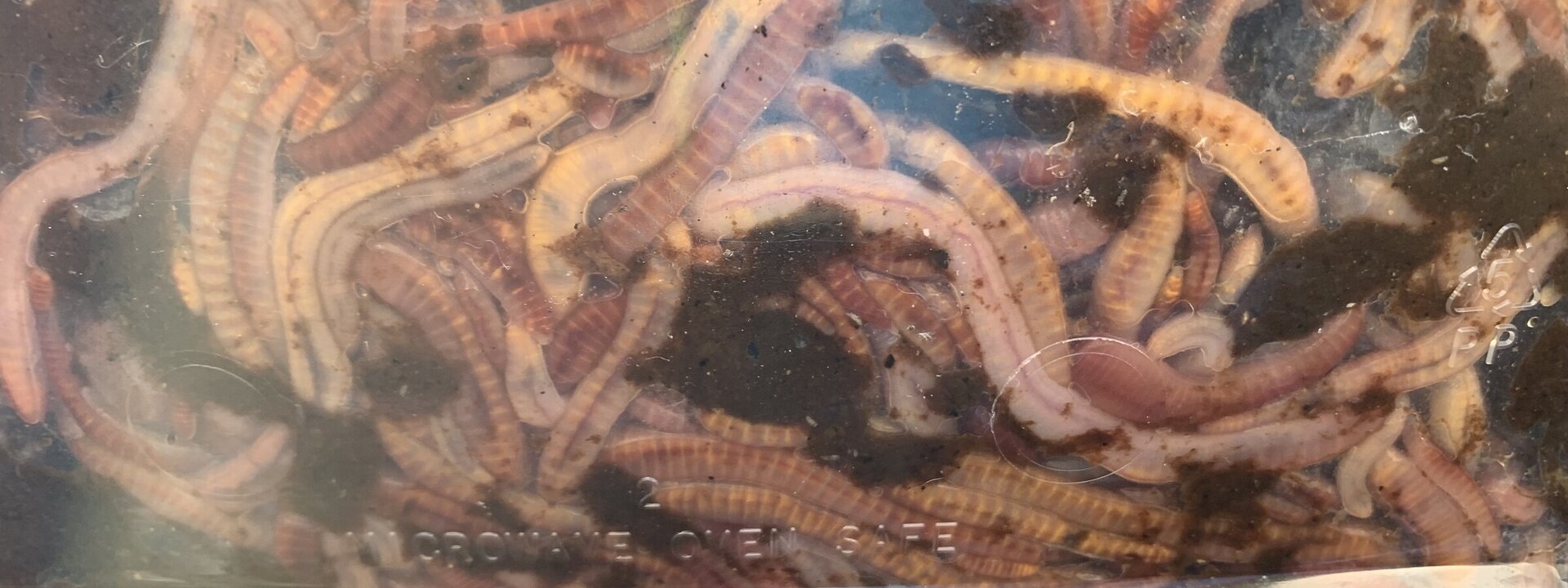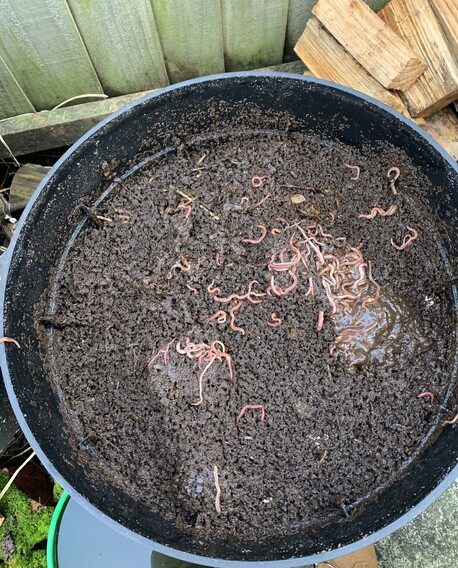Worm Farming and Composting
Worm Farming & Composting: Your Path to Urban Soil Gold
Sometimes, the best adventures begin with a happy accident and a healthy dose of naivety. That's certainly how my deep dive into the world of sustainability, composting, and gardening truly began. Back in the mid-90s, after an overseas adventure, I settled into a charming old cottage in Lyttelton. Its garden, steep and filled with clay and volcanic rock, was a challenging yet ultimately rewarding learning curve. While I'd always been an "average" plant guardian at best, the sheer volume of what you could grow in a confined space intrigued me.
Composting, however, remained my nemesis. Traditional methods, like the "three-box system," involved heavy lifting, constant turning, and unwelcome rodent visitors. My dad, ever the gardening sage, always had a fantastic supply of compost and worms. Inspired, I picked up a Christchurch City Council pamphlet on worm farming and reached out to order worms from a well-known worm farmer in Nelson. Soon after, I jokingly announced to a bar in Lyttelton that I was now a worm farmer. As fate would have it, a journalist was there, and a short story about my new endeavor appeared in the Akaroa Mail.
The Worm Tornado: From Article to Overnight Sensation
What happened next was utterly bonkers! After that initial article hit the local paper, the phone calls and faxes went absolutely wild. TV1 News, CTV News, TV3 News – they all came calling, filming for national prime-time news. I still only had my initial order of worms, carefully pulling them out for their "TV dinners" in the fridge to show off on camera. My Reln Worm Factory, made from recycled Australian banknotes, sat in the shed, and my fax machine went crazy with orders from all over the country. That, my friends, was the accidental kick-off to a truly accidental business!
The faxes and phone calls kept coming, and I was even getting mail from people wanting to order worms! The problem? I really didn't have any to sell. So, I had to order more worms from Nelson and quickly learn the ropes of actually being a worm farmer. There was so much to learn in the beginning: What do they eat? What don't they eat? I can definitively tell you, they do not eat crayfish – that was a very smelly experience! I also quickly learned that perhaps having the worm farms in my kitchen wasn't the most professional setup. At one point, I had two or three round worm farms, then a whole factory, and then worm beds! In fact, I still have one of those original Reln farms today – the tap has been replaced a few times, and the legs too, but the core design really does last.
A Sustainable Passion Takes Root
Worm farming was a fantastic education. While simultaneously working at a recruitment agency, I often spent late nights in the kitchen, headlamp on, trying to sort and weigh worm orders while figuring out what kind of newspaper they preferred and how moist to make it for transport (this was before colored newspaper, so it was much easier back then!). Despite a few disasters, including worms making grand escapes due to unfavorable living conditions, I persevered.
Eventually, I found Robbie from Central Wormworx Ltd in Cromwell and started ordering kilograms of worms at a time. This made it much easier to keep up the supply, which then led to the business scaling into retail. We had contracts with Portstone Garden Centre, Tera Viva, and Oderings. This led to developing a system where takeaway containers could fit into a nice little shelving unit, perfect for selling 100-gram lots. I started selling worms and other worm-related goodies at garden centers and markets. I even began educating preschools and kindergartens about worms, giving countless worm talks to various organizations.
The business grew to the point where it was truly sustainable, and more importantly, incredibly enjoyable. I loved the mission, connecting with people through worm farming talks, and especially working with the incredible products the worms made: their castings and worm tea. To this day, I still find immense joy in the composting process, watching waste transform into beautiful, nutrient-rich soil.
Barrington on Green, in essence, was an accidental spark that ignited an entrepreneurial spirit within me, turning simple ideas into thriving businesses. It brought me immense joy, and I truly believe anyone can enjoy the benefits of a worm farm, whether it's in a backyard or on a balcony. We even embraced Bokashi, a complementary system for meat and oils (though my cats and dogs found it a little too interesting!). After ten fulfilling years, I successfully sold the business, and it's still going today. It's been one of the best things that has ever happened in my working career, teaching me so much about training people, public speaking, and the endless conversation points surrounding worms. It's been fantastic!
The Benefits of Worm Farming: Nothing Wasted, Everything Nourished
Worm farming, or vermicomposting, is an incredibly efficient and eco-friendly way to transform your organic waste into a valuable resource for your garden. It embodies the zero-waste philosophy, ensuring that nothing is wasted and everything contributes to a healthier planet.
Reduces Landfill Waste: Instead of sending your kitchen scraps, paper, and cardboard to the landfill, you can feed them to your worms. This significantly reduces the volume of waste you produce, lessening your environmental footprint.
Creates Nutrient-Rich Soil Amendments: Worms are nature's tiny alchemists. As they consume organic matter, they produce two incredible by-products:
Worm Castings (Vermicompost): These are essentially worm poop, but don't let that deter you! Worm castings are a powerhouse of concentrated nutrients, enzymes, and beneficial microbes. They are far richer in nutrients than traditional compost and act as a slow-release fertilizer, promoting vigorous plant growth, improving soil structure, and enhancing water retention. They're excellent for boosting seedlings, revitalizing tired garden beds, and feeding your houseplants.
Worm Tea (Leachate): This liquid gold is the nutrient-rich liquid that drains from your worm farm. It's teeming with beneficial microorganisms and soluble plant nutrients. Diluted worm tea makes a fantastic liquid fertilizer for foliar feeding or watering your plants, giving them a quick and effective nutrient boost.
Improves Soil Health: By adding worm castings and worm tea to your garden, you're not just providing nutrients; you're actively improving the overall health of your soil. The beneficial microbes in these by-products help to:
Increase nutrient availability: Making existing nutrients in the soil more accessible to your plants.
Enhance soil structure: Leading to better aeration and drainage.
Boost plant immunity: Helping plants resist pests and diseases.
Saves Money: By creating your own high-quality fertilizer and soil conditioner, you reduce your reliance on expensive store-bought products. This is a fantastic way to save money, especially when aiming for self-sufficiency and mindful budgeting.
Simple and Space-Efficient: Worm farming can be done in a small space, making it perfect for urban homesteaders with just 100 square metres. A compact worm farm can live on a balcony, in a shed, or even indoors, making it accessible to almost anyone.
Educational and Engaging: Worm farming is a fascinating process that offers a hands-on learning experience for all ages. It connects you directly with the cycle of nature and the power of sustainable living.
Ready to embark on your own worm farming adventure and transform your urban space into a thriving, self-sufficient oasis?
Sign up to our newsletter
From Our Urban Oasis to Your Inbox! 🌸
Discover the joys of city gardening, worm farming wisdom, hydrosol secrets, and more! Our newsletter brings you self-sufficiency inspiration, budget hacks, and tales from our Christchurch homestead – complete with quails, bunnies, and yoga insights! Subscribe now.

